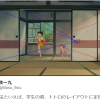
Ministry of Justice proposal aims to let foreign students stay in Japan after they finish school and work their way up the professional ladder.
Last month, the Japanese government announced new visa regulations for foreign students in Japan that make it more difficult to work while studying in the country (though the primary aim is to make sure “students” are actually here to study). However, it looks like it might soon become easier for foreign students to work in Japan after they’re done with school.
A key consideration in determining foreigners’ eligibility for work visas in Japan is the level of work they’ll be doing. Generally, the higher up the hierarchy of an organization you go, the easier it is to obtain permission to work in Japan. The logic is that higher positions provide higher pay, and if you’ve got healthy finances, you’re less likely to need government assistance to make ends meet while living in Japan.
The catch-22, though, is that if you’ve just finished school and are starting your professional adult life, odds are you’re going to be working an entry-level job (that’s why they call them entry-level jobs, after all). While those kinds of stepping-stones don’t cause major problems for Japanese citizens, the Ministry of Justice says they make it heard for foreign students in Japan to remain in the country after graduation, since the lower-level jobs are less likely to satisfy the requirements for a work visa.
In 2016, for example, out of the 12,000 foreign graduates of four-year Japanese universities, the majority quickly returned home, with only 40 percent remaining in Japan for work. “These students came to Japan, learned the language and also the good points of the country, but then were forced to return home,” lamented a Ministry of Justice spokesperson (it’s unclear what portion of the 60 percent which returned to their home countries did so voluntarily versus out of necessity when unable to secure a visa).
Because of that, the ministry is now considering lowering the criteria of what qualifies as visa-eligible positions. For example, under the current system, foreigners who came to Japan, studied animation, and were offered jobs as animation assistants in the anime industry would not qualify for work visas, thus precluding them from ever working their way up to the higher level positions necessary to maintain their status as residents of Japan. Foreigners who came to Japan to learn about restaurant operations and then found work as restaurant waitstaff, as opposed to managers or chefs, would face a similar problem.
The Ministry of Justice is currently debating the possibility of making such entry-level positions eligible for work visas, having come to the conclusion that in order to keep foreign students in Japan once they become productive members of society is, naturally, to give them the opportunity to become productive members of society. Should the relaxed work visa requirements win approval, they could go into effect as early as next spring.
Source: Yahoo! Japan News/Asahi Shimbun Digital via Otakomu
Top image: Pakutaso
Insert image: Pakutaso


 Easier anime work visa requirements for foreign students being considered by Japanese government
Easier anime work visa requirements for foreign students being considered by Japanese government Japanese government awards its first-ever working visas to foreign professional gamers
Japanese government awards its first-ever working visas to foreign professional gamers Japanese government announces stricter requirements for foreigner student visas
Japanese government announces stricter requirements for foreigner student visas Immigration Bureau relaxes work restrictions for foreigners trapped in Japan during pandemic
Immigration Bureau relaxes work restrictions for foreigners trapped in Japan during pandemic Japanese government considering raising foreign resident visa renewal fees by 400 percent or more
Japanese government considering raising foreign resident visa renewal fees by 400 percent or more Osaka establishes first designated smoking area in Dotonbori canal district to fight “overtourism”
Osaka establishes first designated smoking area in Dotonbori canal district to fight “overtourism” Tokyo Skytree turns pink for the cherry blossom season
Tokyo Skytree turns pink for the cherry blossom season Adorable Totoro acorn key holders come with a special guest hidden inside[Photos]
Adorable Totoro acorn key holders come with a special guest hidden inside[Photos] Japan’s new “Cunte” contact lenses aren’t pronounced like you’re probably thinking they are
Japan’s new “Cunte” contact lenses aren’t pronounced like you’re probably thinking they are Starbucks Japan adds new sakura Frappuccino and cherry blossom drinks to the menu
Starbucks Japan adds new sakura Frappuccino and cherry blossom drinks to the menu Psyduck teapot produced by Japanese craftspeople is here to serve up a headache-soothing cuppa
Psyduck teapot produced by Japanese craftspeople is here to serve up a headache-soothing cuppa Foreign tourists in Japan will get free Shinkansen tickets to promote regional tourism
Foreign tourists in Japan will get free Shinkansen tickets to promote regional tourism Manga artist raises question online about false perspective in Ghibli film My Neighbor Totoro
Manga artist raises question online about false perspective in Ghibli film My Neighbor Totoro Poo sakura are in full bloom at Unko Museum’s cherry blossom festival in Tokyo
Poo sakura are in full bloom at Unko Museum’s cherry blossom festival in Tokyo Visit the mythical cave that hid the Sun Goddess in Japanese mythology
Visit the mythical cave that hid the Sun Goddess in Japanese mythology The 10 most annoying things foreign tourists do on Japanese trains, according to locals
The 10 most annoying things foreign tourists do on Japanese trains, according to locals Starbucks Japan releases new sakura goods and drinkware for cherry blossom season 2026
Starbucks Japan releases new sakura goods and drinkware for cherry blossom season 2026 Naruto and Converse team up for new line of shinobi sneakers[Photos]
Naruto and Converse team up for new line of shinobi sneakers[Photos] Is Sapporio’s Snow Festival awesome enough to be worth visiting even if you hate the snow? [Pics]
Is Sapporio’s Snow Festival awesome enough to be worth visiting even if you hate the snow? [Pics] Japan has trams that say “sorry” while they ride around town…but why?
Japan has trams that say “sorry” while they ride around town…but why? Sakura Totoro is here to get spring started early with adorable pouches and plushies
Sakura Totoro is here to get spring started early with adorable pouches and plushies Starbucks Japan unveils new sakura Frappuccino for cherry blossom season 2026
Starbucks Japan unveils new sakura Frappuccino for cherry blossom season 2026 Poop is in full bloom at the Unko Museums for cherry blossom season
Poop is in full bloom at the Unko Museums for cherry blossom season Now is the time to visit one of Tokyo’s best off-the-beaten-path plum blossom gardens
Now is the time to visit one of Tokyo’s best off-the-beaten-path plum blossom gardens Playing Switch 2 games with just one hand is possible thanks to Japanese peripheral maker
Playing Switch 2 games with just one hand is possible thanks to Japanese peripheral maker Japan’s newest Shinkansen has no seats…or passengers [Video]
Japan’s newest Shinkansen has no seats…or passengers [Video] Foreigners accounting for over 80 percent of off-course skiers needing rescue in Japan’s Hokkaido
Foreigners accounting for over 80 percent of off-course skiers needing rescue in Japan’s Hokkaido Super-salty pizza sends six kids to the hospital in Japan, linguistics blamed
Super-salty pizza sends six kids to the hospital in Japan, linguistics blamed Take a trip to Japan’s Dododo Land, the most irritating place on Earth
Take a trip to Japan’s Dododo Land, the most irritating place on Earth Archfiend Hello Kitty appears as Sanrio launches new team-up with Yu-Gi-Oh【Pics】
Archfiend Hello Kitty appears as Sanrio launches new team-up with Yu-Gi-Oh【Pics】 Survey asks foreign tourists what bothered them in Japan, more than half gave same answer
Survey asks foreign tourists what bothered them in Japan, more than half gave same answer Japan’s human washing machines will go on sale to general public, demos to be held in Tokyo
Japan’s human washing machines will go on sale to general public, demos to be held in Tokyo Starbucks Japan releases new drinkware and goods for Valentine’s Day
Starbucks Japan releases new drinkware and goods for Valentine’s Day We deeply regret going into this tunnel on our walk in the mountains of Japan
We deeply regret going into this tunnel on our walk in the mountains of Japan Studio Ghibli releases Kodama forest spirits from Princess Mononoke to light up your home
Studio Ghibli releases Kodama forest spirits from Princess Mononoke to light up your home Major Japanese hotel chain says reservations via overseas booking sites may not be valid
Major Japanese hotel chain says reservations via overseas booking sites may not be valid Put sesame oil in your coffee? Japanese maker says it’s the best way to start your day【Taste test】
Put sesame oil in your coffee? Japanese maker says it’s the best way to start your day【Taste test】 No more using real katana for tourism activities, Japan’s National Police Agency says
No more using real katana for tourism activities, Japan’s National Police Agency says Foreigners can now apply for visas to visit fiancés living in Japan
Foreigners can now apply for visas to visit fiancés living in Japan Japanese prime minster wants to increase the number of foreigners studying in Japan
Japanese prime minster wants to increase the number of foreigners studying in Japan Number of foreigners studying Japanese in Japan hits record high, but are there enough teachers?
Number of foreigners studying Japanese in Japan hits record high, but are there enough teachers? Moving to Japan as a foreigner to work as a taxi, bus or truck driver may be getting easier soon
Moving to Japan as a foreigner to work as a taxi, bus or truck driver may be getting easier soon Japan increases entry limits, offers extra financial aid for foreign students
Japan increases entry limits, offers extra financial aid for foreign students Over 30 percent of surveyed Japanese managers feel intense stress from working with foreigners
Over 30 percent of surveyed Japanese managers feel intense stress from working with foreigners Japanese government to limit foreign students’ coronavirus financial aid to top 30 academic percent
Japanese government to limit foreign students’ coronavirus financial aid to top 30 academic percent Foreigners in Japan sound off on the top four quirks of the Japanese job-hunting system
Foreigners in Japan sound off on the top four quirks of the Japanese job-hunting system Japan set to introduce new entry system for foreign tourists
Japan set to introduce new entry system for foreign tourists Permanent residency in Japan now possible after just one year
Permanent residency in Japan now possible after just one year Japan now has over 40,000 foreign convenience store clerks as it continues to internationalize
Japan now has over 40,000 foreign convenience store clerks as it continues to internationalize Foreign workers being hired for Fukushima nuclear power plant decommissioning project
Foreign workers being hired for Fukushima nuclear power plant decommissioning project Record number of foreign children in Japan need help understanding Japanese in school
Record number of foreign children in Japan need help understanding Japanese in school Four factors frustrating foreigners fighting for jobs in Japan
Four factors frustrating foreigners fighting for jobs in Japan Meetings and more meetings: Foreigners list the pros and cons of working at a Japanese company
Meetings and more meetings: Foreigners list the pros and cons of working at a Japanese company Foreign workers respond to survey about changes they’d like to see in the Japanese workplace
Foreign workers respond to survey about changes they’d like to see in the Japanese workplace Japan second-least attractive country for expats to work, survey says, but is it really that bad?
Japan second-least attractive country for expats to work, survey says, but is it really that bad?